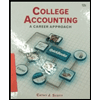Raintree Cosmetic Company sells its products to customers on a credit basis. An adjusting entry for bad debt expense is recorded only at December 31, the company's fiscal year-end. The 2023 balance sheet disclosed the following: Current assets: Receivables, net of allowance for uncollectible accounts of $36,000 $ 462,000 During 2024, credit sales were $1,780,000, cash collections from customers $1,860,000, and $41,000 in accounts receivable were written off. In addition, $3,600 was collected from a customer whose account was written off in 2023. An aging of accounts receivable at December 31, 2024, reveals the following: Age Group 0-60 days 61-90 days 91-120 days Percentage of Year- End Receivables in Group 70% 20 Percent Uncollectible 5% 15 20 5 40 5 Over 120 days Required: 1. Prepare summary journal entries to account for the 2024 write-offs and the collection of the receivable previously written off. 2. Prepare the year-end adjusting entry for bad debts according to each of the following situations: a. Bad debt expense is estimated to be 4% of credit sales for the year. b. Bad debt expense is estimated by adjusting the allowance for uncollectible accounts to the balance that reduces the carrying value of accounts receivable to the amount of cash expected to be collected. The allowance for uncollectible accounts is estimated to be 10% of the year-end balance in accounts receivable. c. Bad debt expense is estimated by adjusting the allowance for uncollectible accounts to the balance that reduces the carrying value of accounts receivable to the amount of cash expected to be collected. The allowance for uncollectible accounts is determined by an aging of accounts receivable. 3. For situations (a)-(c) in requirement 2 above, what would be the net amount of accounts receivable reported in the 2024 balance sheet?
Bad Debts
At the end of the accounting period, a financial statement is prepared by every company, then at that time while preparing the financial statement, the company determines among its total receivable amount how much portion of receivables is collected by the company during that accounting period.
Accounts Receivable
The word “account receivable” means the payment is yet to be made for the work that is already done. Generally, each and every business sells its goods and services either in cash or in credit. So, when the goods are sold on credit account receivable arise which means the company is going to get the payment from its customer to whom the goods are sold on credit. Usually, the credit period may be for a very short period of time and in some rare cases it takes a year.

Step by step
Solved in 5 steps









